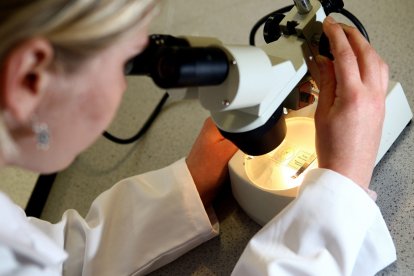Promising breakthrough in the fight against cancer: Israeli study aims to reprogram the immune system to attack tumor
Researchers developed a therapeutic approach that shows encouraging results in experimental models of bladder cancer.

Promising Israeli breakthrough in the fight against cancer (illustrative image).
A new study from the Weizmann Institute of Science in Israel, published by the journal Cancer Cell, could revolutionize the fight against cancer.
One of the most complex challenges is that tumors manage to manipulate the immune system to their advantage. In many cases, they do this by capturing certain types of immune cells - especially macrophages - and convincing them to collaborate with their growth and defense, rather than fight it. However, this new study could change that.
Professor Ido Amit's team used next-generation gene-editing tools (such as CRISPR-Cas9), single-cell sequencing and artificial intelligence to identify which genes transform macrophages into cancer allies. From this finding, they developed a therapeutic approach that shows encouraging results in experimental models of bladder cancer.
Professor Amit explained that macrophages are like "a Swiss army knife" of the immune system, with multiple programs of action. He added that under normal conditions, they can be effective tumor destroyers.
However, the specialist indicated that tumors often develop strategies to recruit them and activate their functions that favor cancer growth, such as stimulating the formation of blood vessels or slowing down other immune cells that would attack the tumor.
A new approach
The problem is that until now, attempts to reprogram these macrophages have failed to achieve solid results, in part because they have been simplistically divided into two types: tumor-helping and tumor-fighting.
This new approach proposes a more nuanced view.
By analyzing patient samples and their genetic profiles, they identified 120 genes with the potential to influence macrophage behavior. Then, they created a system to evaluate one by one the effect of silencing each gene, observing how that modified the cells' behavior.
The volume of data was so overwhelming that they had to rely on an artificial intelligence tool called mrVI, developed by Professor Nir Yosef, to make sense of all that information.
This technology helped to clearly visualize which genes were key in macrophage programming.
The gene that stood out most was Zeb2, which until now had not been linked to the immune system in the context of cancer. When Zeb2 is active, macrophages behave as tumor protectors. But by silencing this gene, those same cells are transformed into cancer attackers.
The researchers developed a DNA molecule designed to selectively enter macrophages and deliver a RNA fragment that blocksZeb2.
The treatment worked in mice
Applied in mice with bladder cancer, this treatment reprogrammed macrophages and significantly reduced tumor size.
The goal now is to take this finding to the clinic and turn it into an effective treatment for humans.
This study also highlights how new technologies make it possible to understand in great detail how the immune system works and how that understanding can open the door to innovative therapies.
RECOMMENDATION























